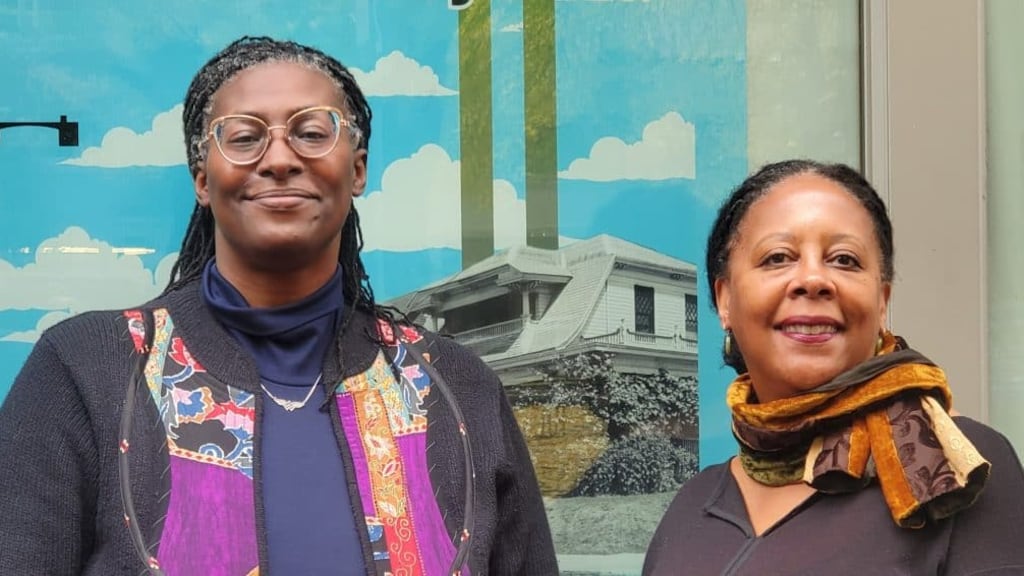Last September, the Regional Arts & Culture Council placed its executive director, Carol Tatch, on leave pending an investigation. The board did not say what it was investigating. In early November, The Oregonian reported that Tatch had been quietly fired by the board of the nonprofit organization, which receives millions of public dollars each year from local governments, including the city of Portland, and distributes them via grants to muralists, sculptors and performance venues.
Tatch’s departure came at a delicate time for RACC. Three months earlier, the city of Portland announced it would no longer send RACC proceeds to distribute from its annual arts tax and city general fund dollars, ending a nearly 30-year partnership. Most of the nonprofit’s funding comes from the city, and Tatch’s firing intensified questions about RACC’s operations and future.
RACC still will not say what led to Tatch’s firing. But WW has learned Tatch appears to have deviated last year from the organization’s standard vetting procedure for distributing grants to artists. Sometime in 2023, exactly when is unclear, Tatch directed the organization to write checks for $75,000 to three prominent Portland artists, without holding a competitive process.
The amounts were unusual; RACC typically gives no more than $7,000 to any single artist in a grant cycle, and the largest amounts it awards to individual creatives are two $20,000 fellowships.
And RACC’s grants are usually competitive. During one RACC grant cycle, in 2022, 1,661 artists applied but only 755 artists received money. That ratio is typical for the nonprofit.
Current RACC leaders wrote in response to WW’s questions that Tatch alone chose who received the $75,000 checks—$225,000 in total.
“The process to select the recipients and distribute these funds was designed by and at the direction of RACC’s executive director [Tatch] at the time the distributions were made,” RACC leaders said in a statement to WW. RACC added that the three artists were “invited to submit proposals for funding from the bequest” and that “all three artists submitted proposals outlining their community-based work and were each funded for $75,000.”
By RACC’s telling, only those three artists were invited to submit proposals. “There are only three artists for whom there is documentation,” RACC now says. (One of the artists disputes this, saying she was never asked to submit a proposal for the funding; she simply received the money.)
RACC leaders declined to comment whether the checks related to the investigation and firing of Tatch.
Tatch denies RACC’s assertion that she acted alone.
“What I can surmise is that you have not been made privy to the findings of the investigation through which I was cleared of the false accusations from RACC’s leadership team and board,” Tatch wrote in response to questions from WW. “I cannot say why you haven’t been given all of the relevant information or why you have been intentionally provided with false information.”

While RACC is a major recipient of tax and general fund dollars from the city, the $225,000 in question was not public money. Instead, it came from the estate of a wealthy arts patron.
In 2022, philanthropist Harriet Beal Cormack died. Cormack led major redevelopments along the Willamette River waterfront, including RiverPlace, and later served as director of the Portland Centers for the Performing Arts. She left $550,000 to RACC, along with similar bequests to Oregon Public Broadcasting, the education nonprofit All Hands Raised, Home Forward, and Pioneer Courthouse Square.
Civil court records related to Cormack’s estate in Multnomah County show that Tatch signed off to receive the estate money on behalf of RACC on June 20, 2023.
“These funds will greatly help us fulfill our mission to enrich communities through arts and culture,” a November 2022 press release from RACC read.
Current RACC leaders says the gift was “unrestricted,” meaning the council could use the bequest as it pleased. Indeed, estate documents filed in court do not appear to restrict how RACC could use the money.
That someone would leave such a large sum to RACC from an estate is rare, one board member tells WW—meaning there was likely little precedent for how the council should distribute such a large and unrestricted pot of money.
All three artists Tatch allegedly selected are well-known Black Portlanders: Bobby Fouther, Cole Reed and Dr. S. Renee Mitchell.
Mitchell was a longtime columnist for The Oregonian and went on to found a nonprofit that supports Black youth development. In 2020, late City Commissioner Nick Fish gave Mitchell a Spirit of Portland Award, saying she was “a hero who has been in plain sight in our community.” She’s a regular speaker at events and conferences about social justice, racism and art, and is this year’s Steve Lowenstein Trust Award winner.
Fouther, too, has long been a leader in Portland’s art and dance scene, particularly in the Black community. Fouther’s art has adorned the sides of the Portland Streetcar and walls of countless galleries, much of it focusing on the roots and hardships his ancestors endured as Black Americans. He’s taught courses at Portland State University and has sat on committees related to some of the city’s most prominent arts groups, including the Oregon Children’s Museum. Like Mitchell, he’s a recipient of Spirit of Portland and Lowenstein awards.
Cole Reed is a more recent transplant to Portland. She’s known for her mixed-media works that focus on racial oppression and co-owns greenHAUS, a gallery in Northeast Portland that showcases rotating artists, jewelers and other creatives.
Mitchell tells WW she was not invited to submit a proposal for the $75,000 check, nor did she submit one. Reed and Fouther did not respond to requests for comment.
All three are prior recipients of smaller RACC grants; the nonprofit says each has “established themselves as practicing professional artists and community leaders in the Portland metropolitan region” and, to obtain prior grants, “went through RACC’s well-developed community-based review process.”
Leaders at RACC did not explicitly say the process by which the $75,000 checks were distributed was irregular, but they emphasized that artists typically go through a lengthy application process with “layers” of panels. RACC itself does not vote on which artists to fund, but instead relies on the panelists, who score artists based on their applications.
By leaders’ accounts, the way in which the three artists were awarded the checks did not involve such a process. And though RACC referred to proposals submitted by the three artists for the $75,000 checks, the council said it was “not able” to provide that documentation to WW.
But Tatch tells WW that she received the approval of her co-executive director at the time, Della Rae, for the three checks. Rae did not respond to a request for comment.
The board member that spoke with WW says the findings of the investigation were relayed to them during a virtual meeting last fall in which board members were asked not to record or share the findings with anyone outside the meeting.
The board subsequently decided to terminate Tatch in late October.
Though Tatch says RACC’s accusations were false and that she was cleared of any wrongdoing by the investigation, she declined to provide its findings, writing: “I do not trust you.”

